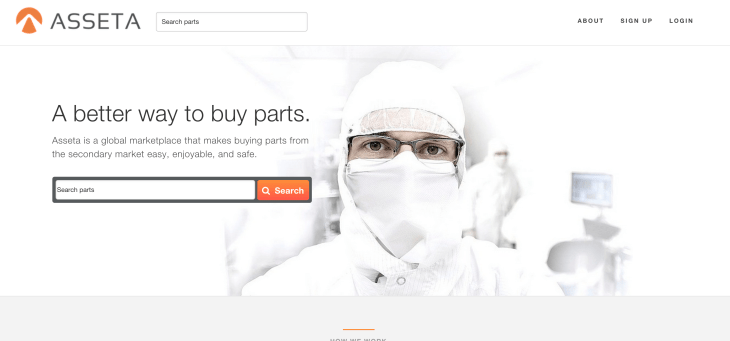Y Combinator alum Asseta, a marketplace for capital equipment and other spare parts, has raised an additional $1 million in seed funding, after shifting its focus away from the sales of used manufacturing equipment last fall, the company says. The new round includes investment from Red Swan Ventures, Zpark Venture, FundersClub, Gil Penchina, Jeff Epstein, Winklevoss Capital, Sandy Kory and Mission and Market.
Initially, the company had the idea to bring the still largely offline world of used manufacturing equipment sales online in a B2B marketplace aimed at eliminating the middleman from transactions. Three of the four company founders had a background in this industry, and understood how equipment brokers operated – noting also that the traditional process was far less transparent than its online marketplace. The company last February raised a seed round of just over half a million. Its inventory largely included semiconductor equipment during this time frame.
But according to co-founder and CEO Anton Brevde, Asseta had to move away from equipment sales to find growth. “After launching, we realized that equipment transactions were too infrequent to build a true marketplace,” he says. “Focusing on spare parts allowed us to dramatically increase the frequency we were transacting with our customers. We went from doing 1-4 deals a year with customers to 20-40 a month.”
Since then, the company has grown 20% per month, Brevde claims.
With capital equipment sales today, most manufacturers buy their parts new from OEMs, but there’s a large, but fragmented network of dealers and brokers with access to both new and used inventory, the CEO explains. Asseta’s marketplace connects these buyers and sellers, allowing the manufacturers to save 60% on their spare part spending, while Asseta takes a 10% fee on transactions.
The company plans to get back into used capital equipment sales again in the future and expand into other verticals. “We want to lower the barriers of entry and make hardware innovation cheaper by providing reliable access to capital equipment and spare parts for a fraction of the cost of new,” says Brevde. “But currently our sole focus is to be the best at parts.”
